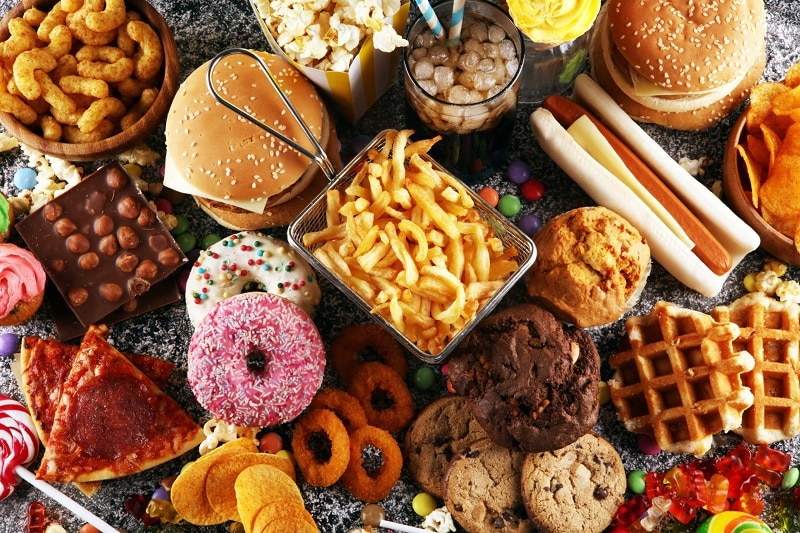Children who eat more ultra-processed food are more likely to be overweight or obese as adults.
The researchers also found that ultra-processed foods including frozen pizzas, sodas, bread or ready to eat meal accounted for a very high proportion of children’s diets; this amounted to 60% of calories on average.
Industrial food processing adjust foods to change their consistency, taste, colour and shelf life, using mechanical or chemical alternation to make them more palatable, cheap, appealing and convenient — processes which don’t happen in home-cooked meals, the study noted. Ultra-processed foods tend to be more energy-dense and nutritionally poorer.
Processed foods have high levels of sugar, salt and saturated fats but low levels of protein, dietary fiber and micronutrients.
The study reveals that children who consume a lot of ‘ultra-processed’ foods are most likely to be less healthy and more obese than their peers with lower intake.
Here are some best options to choose from
- Yogurt: is a wonderful option for breakfast, a snack, or even a dessert but you have to watch the added sugar content. It’s best to go for plain yogurt. It’s a healthy, filling snack that allows you to meet the required amounts of protein and vitamin D, a nutrient many kids lack in their diet. Yogurt also delivers probiotics good bacteria that are important for maintaining a healthy gut.
- Beans: Beans are a humble super food. They’re loaded with protein and fiber, plus they’re cheap and take little time to prepare. Fiber helps promote healthy digestion and helps your kids feel fuller, longer, so they aren’t asking you for a snack 5 minutes after having dinner.
- Eggs: One large egg has 6 grams of protein and delivers vitamin D, vitamin B12 and iron. Some eggs are also fortified with omega-3 fatty acids, which aid in kids’ brain development. Eggs also make a great starter food for babies. Doctors used to recommend not giving eggs until babies were 12 months old, but research now shows that introducing allergenic foods between 6 and 12 months might help prevent food allergies.
- Milk: Milk helps build strong bones because it’s full of calcium and vitamin D. Milk is high in phosphorus, vitamin B12 and potassium and protein
- Switch that biscuit for nuts and seeds to deliver a healthful trio of fiber, protein and healthy fats. Mix it up by offering cashews, walnuts, almonds, sunflower seeds, Chia seeds, ground nuts and others. Be sure to add veggies
You can get you children to eat healthy by allowing them to help you prepare the food in the kitchen. Avoid forcing them to eat healthy; you can pair their favourite food with the new food you want them to try for the first time. Remember to set good example for your children.


